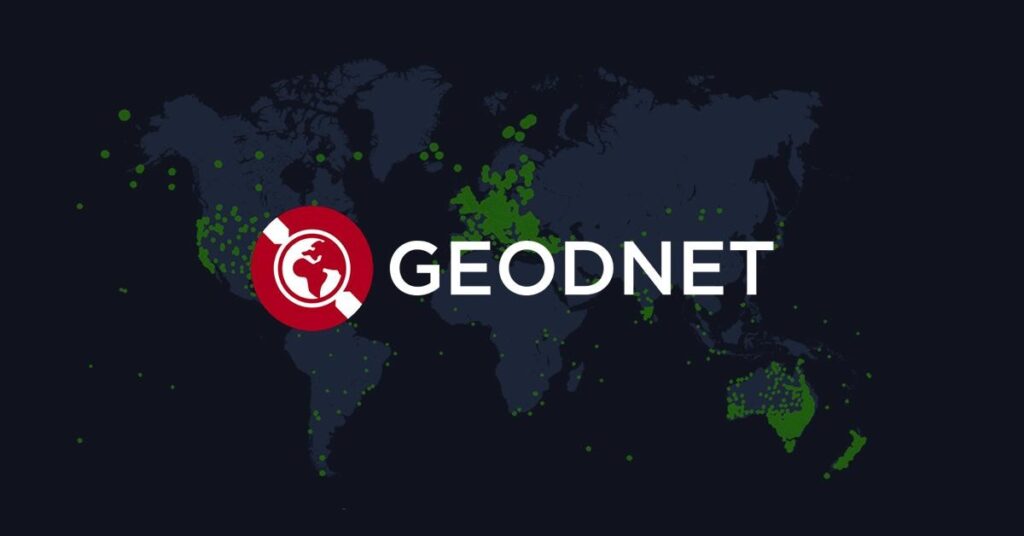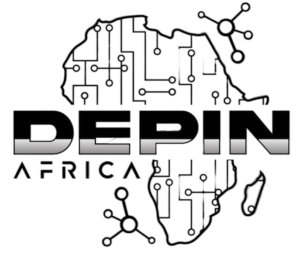No products in the cart.
The future of infrastructure is here, and it’s decentralized. DePIN, or Decentralized Physical Infrastructure Networks, is reshaping how we build and maintain the physical and digital systems that power the world, from wireless networks to power grids and transportation systems.
This evolution combines the power of blockchain technology with community-driven contributions to create more efficient, scalable, and secure infrastructure solutions. But what exactly is DePIN, and why should Africa —with its unique infrastructure challenges—be paying attention?
DePIN is an innovative framework where the development, operation, and / or the maintenance of physical infrastructure are distributed across a decentralized network of participants, rather than being controlled by a single entity like a government or corporation. It thrives on the principles of incentivization, where participants contribute resources such as data, computing power, or connectivity and receive token rewards in return.
- Community Participation: Individuals contribute resources to support the infrastructure network (e.g., installing network devices, providing data, etc.).
- Blockchain Infrastructure: The use of blockchain ensures transparency, security, and decentralization, keeping records immutable and verifiable.
- Token Incentives: Tokens are awarded to participants for their contributions, driving continuous engagement and scaling of the network.
Africa, with its vast geographic spread and underdeveloped infrastructure, stands to benefit immensely from DePIN. For decades, African countries have grappled with issues like insufficient energy access, weak telecommunications, and inconsistent transportation networks.
- Over 640 million Africans still lack access to electricity, according to the African Development Bank.
- The Broadband Commission reports that nearly **half of Africa’s population** remains offline.
- Traditional centralized approaches to infrastructure development have been slow, costly, and often limited by governmental inefficiencies or private monopolies.
DePIN presents a new way forward, offering scalable, affordable, and community-driven solutions that put power into the hands of the people.

This decentralized mapping network allows users to capture real-time street-level data using a dashcam, contributing to a global map. This is especially crucial in Africa, where many rural areas remain unmapped or poorly documented. Participants are rewarded with $HONEY tokens for their contributions, making it a sustainable, scalable solution for improving geographic data. Africa is the least mapped continent on the hivemapper network , despite this, The Depin Africa team brought their first shipment of Hivemapper Dash Cams into the Continent in Early April. We have grown our fleet to over 35 drivers in 3 different African Countries. Our team mostly consists of hardworking Collecting fresh street view data of roads Google would have taken forever to capture.
By enhancing GPS accuracy through a decentralized network of base stations, Geodnet is changing how agriculture, logistics, and urban planning can be managed in Africa. Geodnet is a web3 project that aims to disrupt the global positioning industry by creating precise location data using a worldwide network of global positioning satellites. With better GPS data, African cities can plan smarter, and rural areas can access tools like precision agriculture to boost productivity.

The Geodnet team recently hit the milestone of 10 000 miners worldwide with less than 100 being on the African Continent. We at Depin Africa know there is much work to do to expand the reach of Geodnet on african soil.

The Helium network leverages blockchain to incentivize individuals to create decentralized wireless networks through Hotspots. In Africa, where telecom infrastructure is often sparse, this could provide cost-effective and far-reaching connectivity, especially for Internet of Things (IoT) devices. For instance, One Planet Education Network (OPEN) uses Helium’s connectivity to support sustainable agriculture, climate change research, and emergency services in Liberia. By deploying IoT sensors, they monitor forest ecosystems and contribute to regenerative reforestation projects, aligning their initiatives with the UN’s Sustainable Development Goals.
DePIN isn’t just about technology; it represents a democratization of infrastructure. No longer do we need to wait for governments or corporations to build the systems we need to thrive. With DePIN, every African household or business can contribute to and benefit from the creation of infrastructure.
1
Efficiency
By leveraging a decentralized model, DePIN reduces overhead and scales quickly because it utilizes community resources instead of centralized authorities.
2
Resilience
In a DePIN system, if one node or contributor fails, the network remains operational because it’s distributed. This ensures high reliability in the face of localized failures
3
Opportunities
DePIN allows individuals to earn passive income through their contributions, such as maintaining network devices or providing data. This creates new income streams for households and businesses in African communities.
According to Messari’s 2023 DePIN Sector Map, there were over 650 active DePIN projects with a combined market cap exceeding $20 billion. Fast forward to 2024, and FMG’s report suggests the sector has potential for a 20x increase, indicating significant growth and diversification in the space. According to market forecasts, the DePIN sector could grow to a market size of over $3.5 trillion by 2028. With Africa’s infrastructure needs continually expanding and evolving, DePIN offers a chance to leapfrog traditional methods and create decentralized, community-owned solutions. Imagine a future where electricity grids, internet connectivity, and public transport systems are built and maintained by the very people who use them.
In this vision, Africa doesn’t lag behind —it leads the world in adopting decentralized, people-powered infrastructure. The only question is Are we ready to embrace it? If you are, then DepinAfrica is the place to be, reach out and lets help you join this technological revolution.
GEODNET, short for Global Earth Observation Decentralized Network, is a groundbreaking innovation in positioning technologies, built on the principles of Web 3.0 and decentralized physical infrastructure networks (DePIN). This ambitious project aims to create the largest GNSS (Global Navigation Satellite System) reference station network, providing real-time positioning data with centimeter-level accuracy using advanced real-time kinematic (RTK) technology. In Africa, where precision in sectors like agriculture, construction, and transportation is critical, GEODNET’s decentralized approach offers an exciting opportunity for innovation and growth.
The GEODNET network operates through base stations, also known as satellite miners, installed on rooftops across the globe. These stations collect satellite data and transmit it in real-time, correcting positioning errors for nearby devices. This system allows users to achieve centimeter-level accuracy in the areas surrounding the station, offering a level of precision that is crucial for industries like agriculture, where efficient resource use is paramount, and transportation, where accurate navigation is essential.
In South Africa, our company has successfully deployed over 5 miners across key regions. These miners are helping to build the continent’s contribution to the global GEODNET network, providing valuable data and enhancing positioning accuracy locally.
One of the unique aspects of GEODNET is its reward system. Those who install and maintain base stations (satellite miners) earn GEOD tokens. These tokens can be used to access RTK data services and participate in the governance of the project, making it a decentralized, user-driven ecosystem. GEOD tokens are also available on exchange platforms, offering participants the chance to contribute to the network’s growth while earning rewards. By becoming a part of this network, you’re not only participating in cutting-edge technology but also benefiting from the decentralized economy supporting the project.
GEODNET’s data has vast applications in various African industries:
Agriculture
In regions where resource management is crucial, GEODNET’s precise data helps farmers optimize their operations, improving crop yields and efficiency.
Construction
For projects that require high levels of accuracy in equipment management and site planning, GEODNET ensures centimeter-level precision, reducing errors and improving workflow.
Transportation and Logistics
From navigating rural areas to managing urban traffic, the accurate data from GEODNET’s network transforms how transportation systems function.
By providing this level of accuracy, GEODNET is set to transform African industries, making them more efficient, scalable, and tech-driven.

If you’re interested in contributing to this innovative network, you can purchase the MobileCM Triple-Band Space Weather Station/Base Station directly from our website. By installing this station, you’ll not only help expand the GEODNET network but also earn GEOD tokens, benefiting from rewards while making a significant contribution to earth observation technologies.Should you want us to host it or you ,
GEODNET offers a unique blend of innovation, collaboration, and technology, providing the tools to transform how we observe and interact with the world. By becoming a part of this revolutionary project, you’re helping to build Africa’s future in the world of decentralized physical infrastructure.
To learn more about GEODNET and how you can participate, visit the official website and discover how you can join this groundbreaking network!
At DepinAfrica, we offer a comprehensive hosting program designed to make it easy for you to participate in the GEODNET network without the hassle of setup and deployment. For a portion of your earnings, we will:
- Handle the full setup and deployment of your satellite miners in open hexes (geographical areas) across South Africa.
- Provide ongoing maintenance and monitoring to ensure your miners are running optimally, so you can focus on earning passive income without worrying about technical management.
- Maximize your earnings by deploying the miners in strategically selected hexes to ensure maximum coverage and token rewards.
This program is ideal for individuals or organizations looking to contribute to the GEODNET network without the technical overhead. By leveraging our expertise in deployment and management, you can start earning GEOD tokens right away, while we ensure your miners are installed and functioning at peak performance.
About Depin
- About Us
- Privacy and Policy
- info@depinafrica.com
- +27 63 039 1211
- +32 497 37 35 17
Categories
Help
Newsletter
- copyright - DepinAfrica
